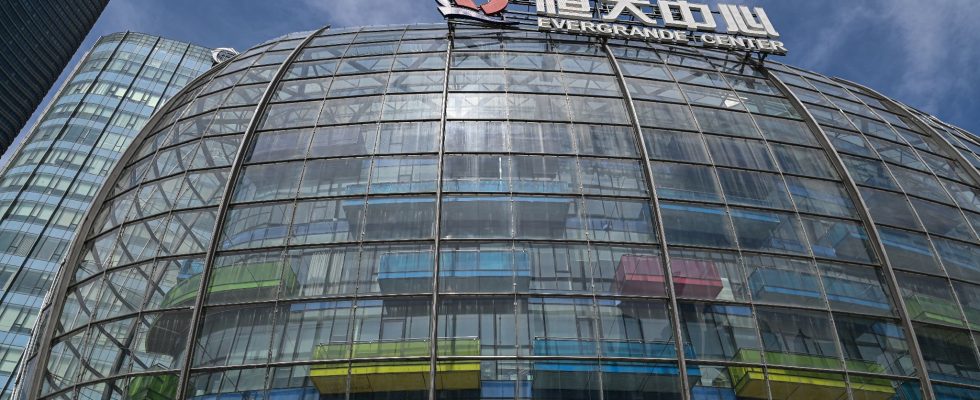Real estate giant Evergrande is seeking to safeguard its US assets pending debt restructuring. The Chinese private conglomerate is in fact in debt of more than 300 billion dollars since 2021, an amount equivalent to the public debt of a country like Portugal. In July, the Evergrande group already announced a net loss of more than 113 billion dollars (100 billion euros) for the years 2021 and 2022. The promoter requested, this Thursday, August 17, its placement in the United States under procedure bankruptcy, according to court documents.
Given the frequency of bankruptcies involving more than one national jurisdiction, the American “Bankruptcy Code”, as in 48 other countries, provides a set of procedures allowing its judicial system to deal with cases involving assets in the United States. Named “Chapter 15”, it notably promotes cooperation between international tribunals and aims to reduce the risk for creditors and stakeholders of foreign companies. For Evergande, the ongoing negotiations in Hong Kong plan to restructure the debt of the real estate giant and exchange it for new bonds. Promoter Evergrande has also offered a stake in two subsidiaries, including its line of electric vehicles.
Ensure deliveries of pre-sold homes
In China, there is concern because owners generally pay for a property before it even comes out of the ground. About 85% of Chinese buyers have booked off-plan and their loans also start months or even years before the work is finished. Like Evergrande, the former number one in the sector, many companies in the Chinese real estate world have been in great difficulty or have gone bankrupt in recent years. Another concern, this time social: these companies also support millions of low-skilled workers – jobs currently under threat.
In many agglomerations, this crisis shows bars of unfinished buildings, even though their apartments are already partly sold. Evergrande and several other groups, having run out of cash and facing the proliferation of legal proceedings, had to suspend work. There would be in China, according to an assessment by the Bloomberg agency, 225 million square meters of housing to be completed. The owners regularly organize demonstrations and refuse to pay the monthly installments of the loans they have taken out with the banks, which further aggravates the situation.
Evergrande, thanks to the restructuring of its debt, is thus trying to ensure its survival. “In fact, Evergrande’s core business is still operational. After all, it has a heavy responsibility to ensure that the deliveries of pre-sold houses are well done”, analyzes Yan Yuejin, director of research at the Institute. E-house China, to AFP this Friday.
The other giant of the sector, Country Garden, is also in difficulty. Last week, the developer announced that it was unable to repay two loan installments. Its debt, at the end of 2022, could amount to between 150 billion euros and 176 billion euros according to estimates.
A threat to the Chinese economic system
Since 2017, the Chinese authorities have multiplied laws in an attempt to regain control over the real estate sector. A first law prohibited the purchase of more than one apartment. In 2020, Chinese President Xi Jinping declares that “housing is for habitation and not for speculation” access to credit for overly indebted developers is revoked. Then, in 2022, “special loans” are arranged for indebted developers and interest rates are lowered in order to revive the real estate market. In addition, banks have postponed the repayment of mortgage loans until the age of 95, a way to bring the market back into line with an aging population. This year, credit support has been renewed and the government also plans to cut red tape.
Evergrande quickly became the symbol of the crisis of the private real estate sector in China. The promoter’s difficulties have already raised fears of its collapse in 2021. But this also raises the question of the risks of contagion to the entire Chinese economy. The real estate market is historically the first liberal entry into the Chinese economy. These heavyweights accounted for nearly 30% of the country’s economic growth until the mid-2010s. The descent into hell of the sector is thrilling the second largest economy in the world. During the boom years, many promoters had recourse to trust or asset management companies to finance their projects – companies and individuals entrusting their savings. But the sector, caught up in the crisis, is increasingly unable to reimburse beneficiaries, causing “considerable losses” to investors and highlighting incalculable hidden risks for the Chinese financial system.
